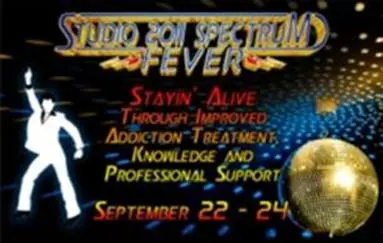The Thirty-Eighth Annual Houston Chapter TAAP Conference on Addiction Studies
September 22 – 24, 2011
TAAP (Texas Association of Addiction Professionals)

Doubletree Hotel at Bush International Airport
15747 JFK Boulevard – Houston, Texas 77032
DBT-CBT for Co-Occurring Disorders and Destructive Coping Behaviors: A Workbook-Based Group Therapy Program Combining DBT, CBT, and AA Recovery Principles
This 1.5 CEU workshop will be presented by Melanie Gordon Sheets, Ph.D.
from 10:30 – 12:00 pm on Friday, Sept 23th, 2011.
This workshop will provide an introduction to the workbook based DBT-CBT recovery program, a modified DBT program for individuals with affective disorders, personality disorders, and destructive coping behaviors, such as substance abuse, self-injury, suicidal threats, verbal/physical aggression, eating disorders, overshopping, etc. Some key recovery concepts, skills, techniques, and understandings will be discussed and several program worksheets will be reviewed.
Training Objectives:
- Participants will gain information about the structure of the DBT-CBT program, target populations, problems addressed, and utility in various treatment settings and by various providers including peer support specialists.
- Participants will understand the basic dynamics of Emotional Mind which drive emotional dyscontrol, relief-seeking destructive coping behaviors, and the Cycle of Suffering.
- Participants will gain familiarity with the use of the Wise Mind Worksheet to work through destructive emotional states, thoughts, and impulses to facilitate constructive problem-solving and life-enhancing coping responses.
- Participants will gain familiarity with the structure and use of a “Game Plan” (a client developed individualized recovery plan) including the use of Rational Mind and Wise Mind to challenge recovery sabotaging Emotional Mind “excuses” and Rational Mind “obstacles.”
Dr. Sheets is the Chief Psychologist at Big Spring State Hospital, the Co-Director of the Lone Star Psychology Residency Consortium internship program, a Clinical Assistant Professor at Texas Tech University School of Medicine, Department of Psychiatry, and the author of the DBT-CBT “Out-of-Control” recovery workbook. She began her career as a mental health technician at Richardson Medical Center in 1985 helping individuals with agoraphobia, substance abuse, depression, Bipolar Disorder, and Borderline Personality Disorder. She earned a doctorate in clinical psychology in 1992 from Texas A&M University where her training emphasized psychoanalytic and Jungian psychotherapy methods. She completed her pre-doctoral internship at the Dallas VA Medical Center in the PTSD Clinic, the Substance Abuse Unit, and Inpatient Psychiatry units. She has conducted the DBT-CBT Group since 2004 for forensic, VA, and general psychiatric inpatients.
The full title of the therapy workbook is “Out-of-Control: A Dialectical Behavior Therapy (DBT) – Cognitive-Behavioral Therapy (CBT) Workbook For Getting Control of Our Emotions and Emotion-Driven Behavior (targeting drug / alcohol abuse, bipolar disorder, borderline personality disorder, depression, anger, cutting, and codependency recovery)” – published by Recovery Works Publications (2009).
| Dr. Sheets will be presenting on the DBT-CBT Workbook program at the North Texas State Hospital Forensic Conference in October, 2011. Details will follow. |
(click here to visit the Houston Chapter website)
TAAP is a state affiliate of the national organization, “The Association for Addiction Professionals” (NAADAC), formerly known as the National Association for Alcoholism and Drug Abuse Counselors. The name change reflects the increasing variety of addiction services professionals: counselors, administrators, social workers and others, who are active in counseling, prevention, intervention, treatment, education and research.
For more information about TAAP, visit their website at: http://www.taap.org
For more information about NAADAC, visit their website at:
http://www.naadac.org


